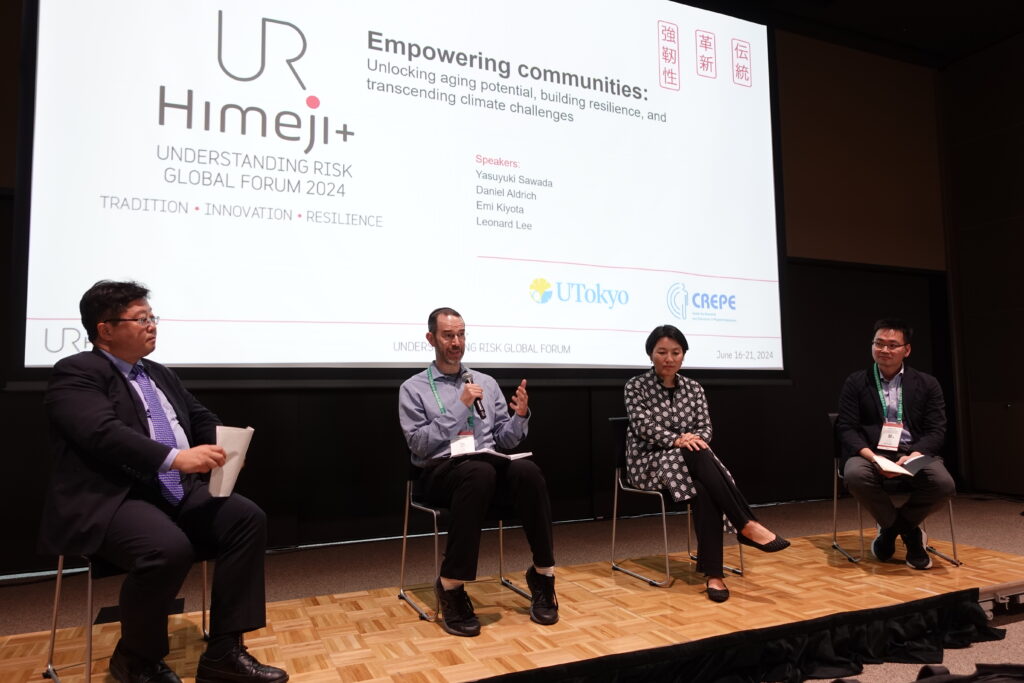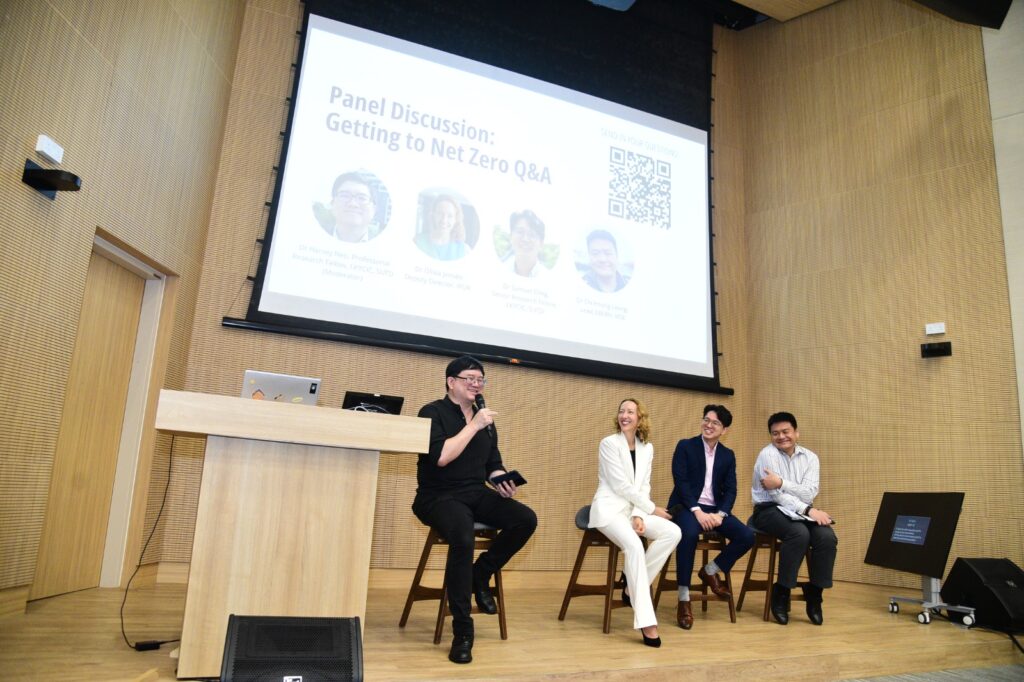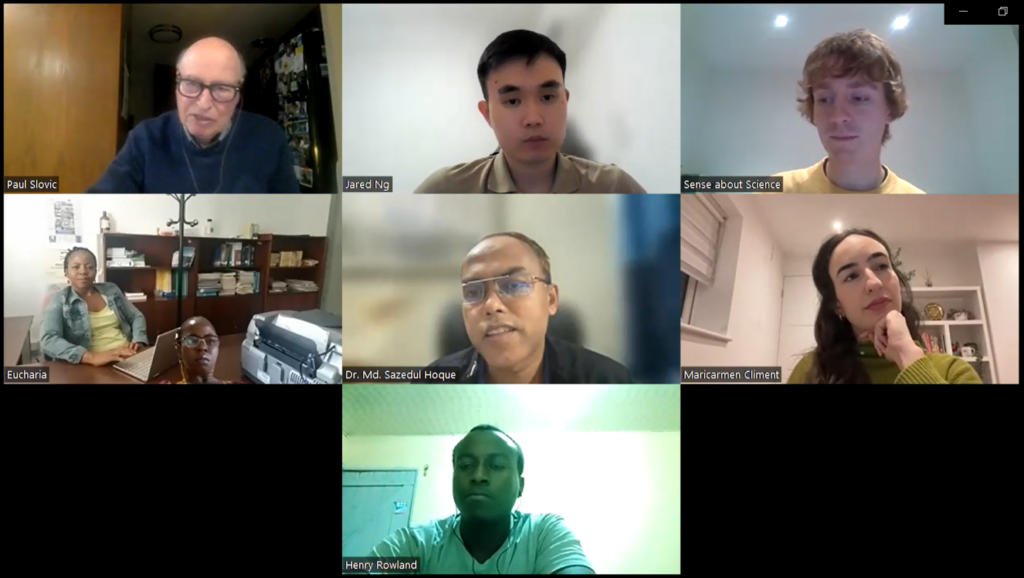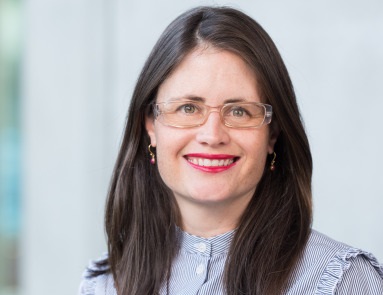Remembering Pablo Suarez

It is with profound sadness that the Institute for the Public Understanding of Risk (IPUR) has learnt about the passing of Pablo Suarez, artist-in-residence at IPUR. Pablo Suarez was a one of a kind communicator. What some may have found boring or simplistic, he could ignite and imbue with excitement. What others would feel was […]
A look back at IPUR’s participation at UR24

Over the course of the Understanding Risk Global Forum held in Himeji, Japan, from 16-21 June, IPUR organised and participated in a series of sessions discussing a range of topics relating to disaster risk. Below are summaries of the events the Institute participated in: From left to right: Dr Anh Cao, Dr Olivia Jensen, Mr […]
Getting to Net Zero in Singapore: Strong support for government policies; many already taking action to reduce their carbon footprint

Singaporeans want to support the national target to achieve Net Zero carbon emissions by 2050. This was despite the current low levels of awareness where only 15% of the respondents knew of the national commitment. However when provided with information about Singapore’s goal, 65% of respondents from a recently completed survey expressed support for Singapore’s […]
Coming on April 8: Revamped “Understanding and Communicating Risk” online course

From April 8, sign up for IPUR’s revamped “Understanding and Communicating Risk” online course featuring more materials and resources to give learners a comprehensive understanding of the concepts, strategies, and best practices in effective risk communication. The revamped course outline features new modules on risk communication techniques and principles delivered by experts and practitioners such […]
IPUR partnering with UN to develop first Global Risk Report

IPUR is proud to announce a partnership with the United Nations Executive Office of the Secretary General (UN EOSG) to develop the first UN Global Risk Report. The report presents the analysis of a survey of various stakeholders including member states, the private sector and civil society among others stakeholders on their perceptions of the […]
A look back: Risk Quotient 2024

A snapshot of the events at Risk Quotient 2024. How can we ensure that society as a whole is prepared for broad implicating risks such as natural hazards while at the same time taking action against everyday risks such as health and safety? This intersection of risks would require a clear and informed understanding of […]
New platform helps communities from Texas to Nairobi to talk about risk

Communities need risk know-how, to manage the risks they face. The Risk know-how Platform launched today at the AAAS Annual Meeting in Denver, USA, pools global resources on risk communication, drawn from the frontier of scientific evidence and makes them available to communities the world over grappling with diverse risks, from fishing safety, hazardous waste […]
Bridging research and practice

https://www.youtube.com/watch?v=vQgH3cvxLQo Following the launch of a 3-part risk communication masterclass by IPUR, we organised an expert consultation session bringing together Prof Paul Slovic and three risk practitioners to discuss challenges faced in the community. The session, held on 23 November 2023, was organised jointly with collaborators from Risk Know-How, a platform which supports people who […]
Risk Quotient 2024 Keynote: Prof Kathryn Bowen

Just two weeks out of the Risk Quotient (RQ) 2024! IPUR is excited to welcome Prof Kathryn Bowen as the keynote speaker for the conference on 29 February. Titled “The role of risk in informing climate change action – a help or a hindrance?” her address will reflect on the increasingly distant ways we consider […]
Inflation tops the list of concerns for Singaporeans in 2023

Inflation was the dominant risk causing concern to Singaporeans in 2023, reflecting the growing economic apprehensions within the nation. More than 80% of Singaporeans were worried about the general increase of prices of goods and services, significantly higher than other prominent issues such as major health concerns (cancer, heart disease and diabetes) and climate change. […]
